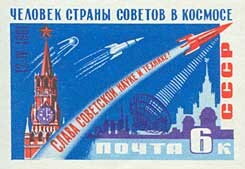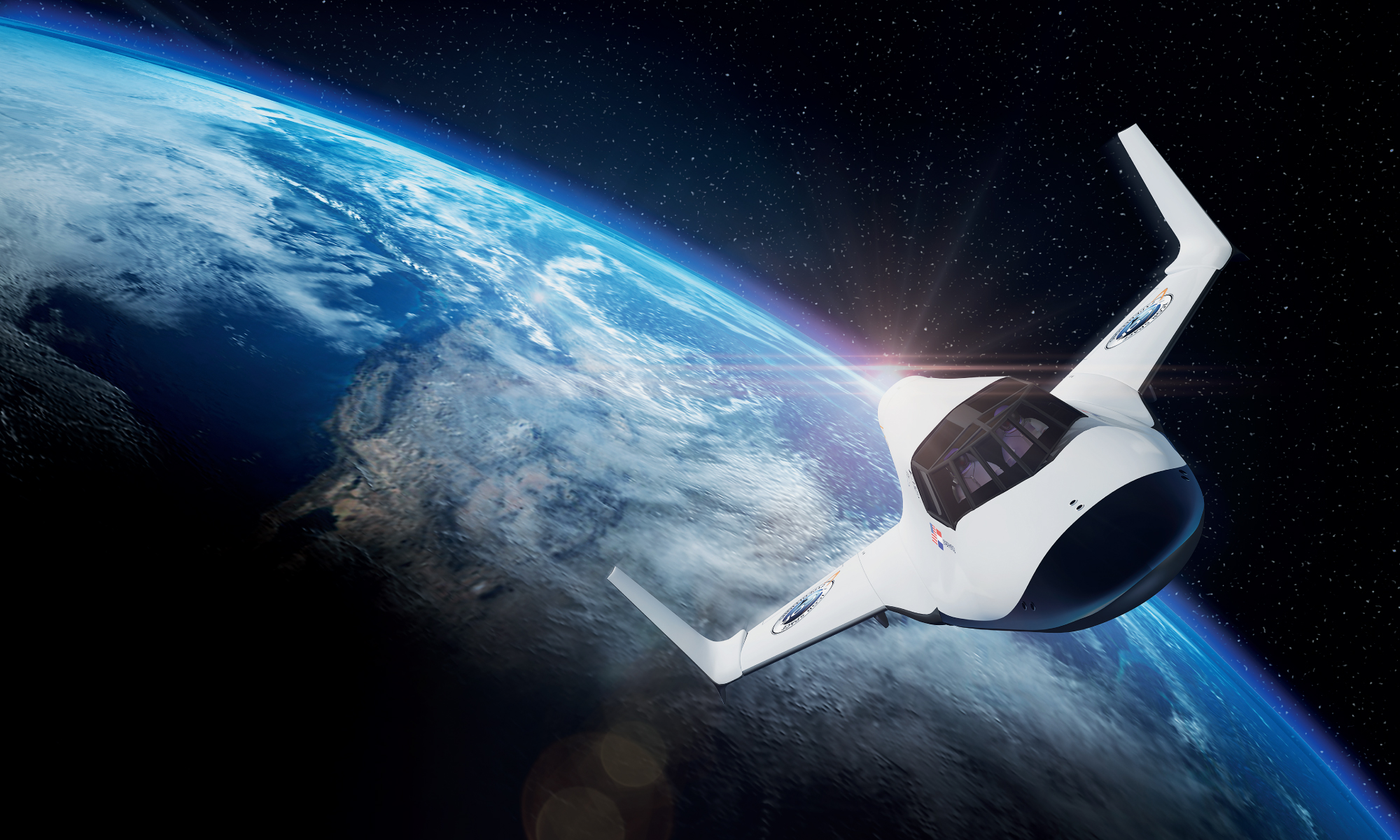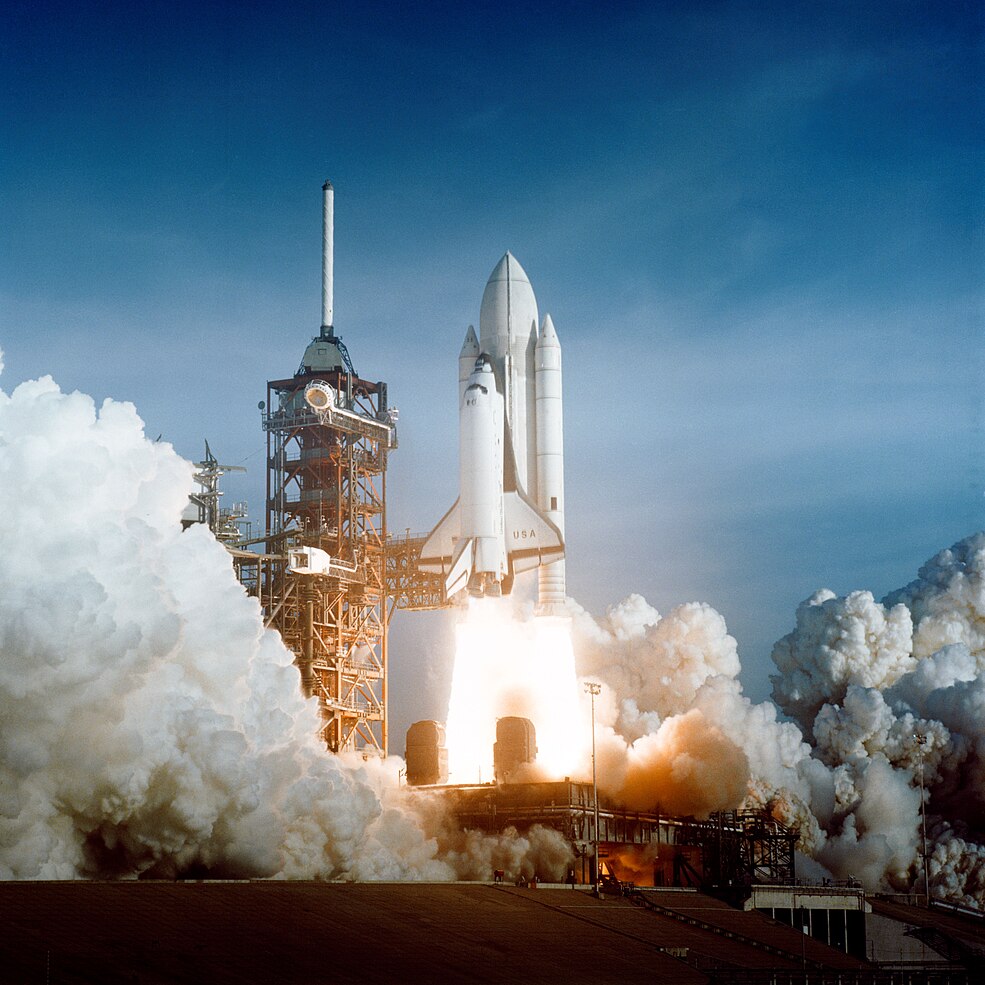Stamp: Glory to Soviet Science and Technology! (Soviet Union, USSR 1961)
Glory to Soviet Science and Technology! (Soviet Union, USSR 1961)
17 June (Soviet Union, USSR ) within release Launch of the First Manned Space Flight goes into circulation Stamp Glory to Soviet Science and Technology! face value 6 Russian kopek
| Stamp Glory to Soviet Science and Technology! in catalogues | |
|---|---|
| Michel: | Mi: SU 2474B |
| Stanley Gibbons: | Sg: SU 2577b |
Stamp is horizontal format.
The illustration shows Vostok I, Sputnik, Spassky Tower, and Baikonur Cosmodrome.Stamp Glory to Soviet Science and Technology! it reflects the thematic directions:
Outer space (or simply space) is the expanse that exists beyond Earth's atmosphere and between celestial bodies. It contains ultra-low levels of particle densities, constituting a near-perfect vacuum of predominantly hydrogen and helium plasma, permeated by electromagnetic radiation, cosmic rays, neutrinos, magnetic fields and dust. The baseline temperature of outer space, as set by the background radiation from the Big Bang, is 2.7 kelvins (−270 °C; −455 °F)
A satellite or artificial satellite is an object, typically a spacecraft, placed into orbit around a celestial body. They have a variety of uses, including communication relay, weather forecasting, navigation (GPS), broadcasting, scientific research, and Earth observation. Additional military uses are reconnaissance, early warning, signals intelligence and, potentially, weapon delivery. Other satellites include the final rocket stages that place satellites in orbit and formerly useful satellites that later become defunct.
A spacecraft is a vehicle that is designed to fly and operate in outer space. Spacecraft are used for a variety of purposes, including communications, Earth observation, meteorology, navigation, space colonization, planetary exploration, and transportation of humans and cargo. All spacecraft except single-stage-to-orbit vehicles cannot get into space on their own, and require a launch vehicle (carrier rocket).
A tower is a tall structure, taller than it is wide, often by a significant factor. Towers are distinguished from masts by their lack of guy-wires and are therefore, along with tall buildings, self-supporting structures.





